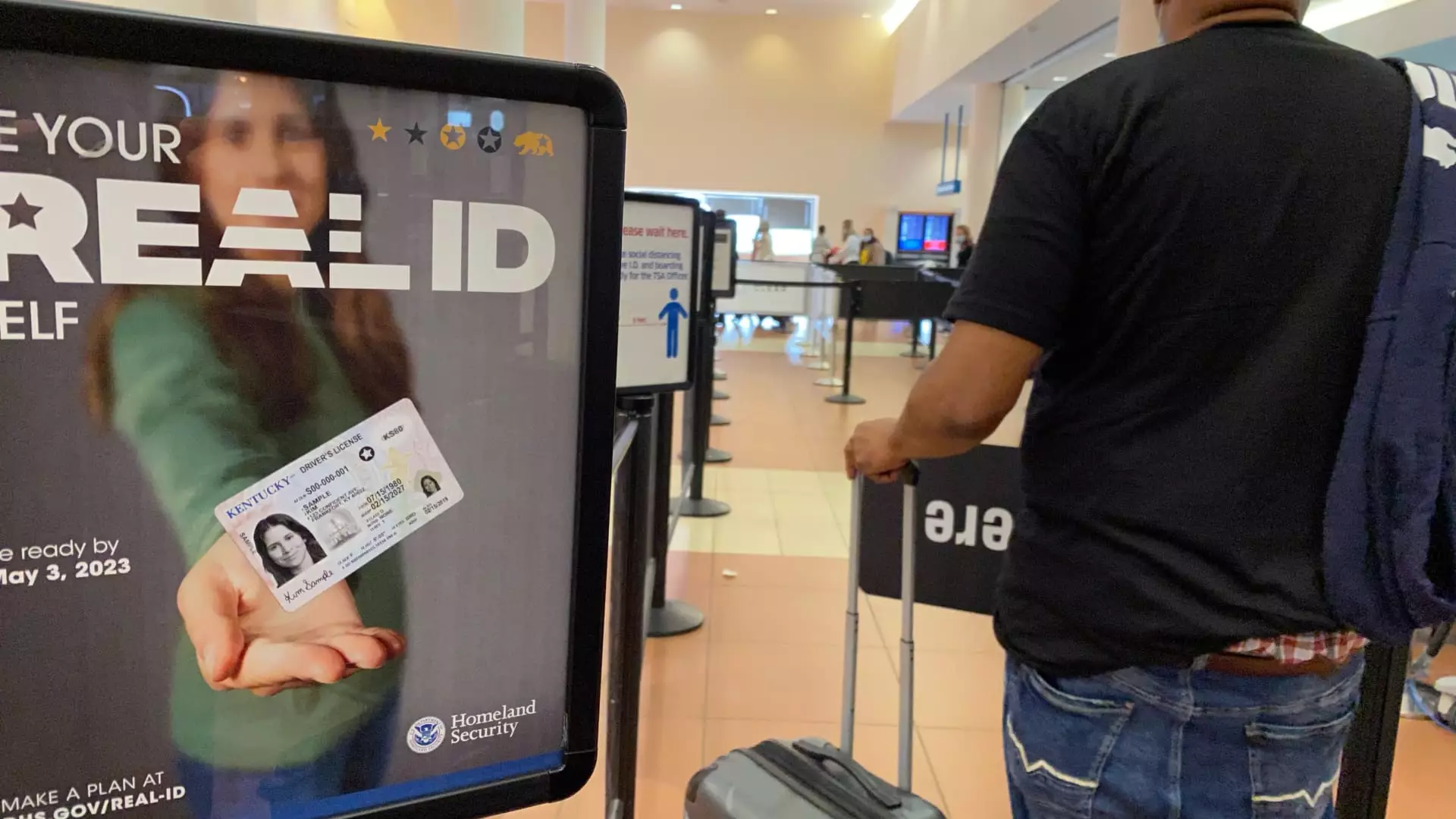It’s now time for travelers to brace themselves for yet another layer of bureaucratic complexity as the federal government enforces the Real ID requirements starting May 7. It’s a move deemed necessary to bolster security, particularly in the wake of the 9/11 attacks. However, in my opinion, this enforcement reflects a fundamental flaw in governance—a reactionary policy that appears more focused on ticking boxes than genuinely enhancing traveler safety. Despite the government claiming that 81% of passengers hold Real ID-compliant identification, the reality is that this hastily implemented policy sets the stage for a congested airport experience and unnecessary stress for those who are unprepared.
Instead of addressing the root causes of security vulnerabilities, the government is leaning heavily into a one-size-fits-all solution that fails to consider the nuances of personal identities. Travelers who arrive at airports without a Real ID might not only face additional screenings but potential denial at checkpoints; the implication of being sidelined simply invokes a sense of dread that negates the joy of travel. When did we start prioritizing compliance over customer experience? It’s crucial that federal authorities address the lack of accessibility to secure compliant IDs, particularly for those in low-income and rural communities who are often left in the dust.
A Delayed Deadlines Game That Frustrates the Public
Despite the signs and warnings, the repetitive delays have made this all feel like a game of chicken. This isn’t just a bureaucratic inconvenience; it’s a blatant misstep in government responsibility. The Real ID Act, envisioned in 2005, has seen more postponements than a toddler refusing to put on their shoes before a family outing. The initial goal was to enhance security measures in a post-terror landscape, yet the continuous extensions have robbed the law of its intended urgency.
This chronic deferral doesn’t just inconvenience passengers; it undermines nationwide efforts to create a uniform identification system. If the government is genuinely committed to national security, then why are resources not allocated to expedite the process of providing Real IDs to those who need them? Why, after nearly two decades, are we still scrambling to meet requirements that have been on the books for ages?
The Irony of Enhanced Security Leading to Reduced Freedom
The very premise behind the Justification of the Real ID Act—where strides in security come at the cost of personal freedoms—bears questioning. Forcing citizens to acquire specific forms of identification to board domestic flights doesn’t merely add bureaucracy; it is an intrusive practice that indirectly implies mistrust within society. We live in a time when digital identities and blockchain-led solutions are being explored for secure identification. Still, here we are in 2023 clinging to outdated systems that insist on a paper trail.
In a typical center-right framework, where personal freedom is valued, it seems ironic that the government is constraining choice and autonomy under the guise of national security. To require specific IDs that many Americans do not have is tantamount to erecting invisible barriers to interstate travel. The potential for “government overreach” rings louder with every regulation that appears to tally up the cost of civil liberties in favor of a so-called “greater good.”
Budget-Friendly Alternatives That Fall Flat
Last-minute rushes to state motor vehicle departments, already overwhelmed by the demand for ID renewals, can detour into a costly affair. While the Transportation Security Administration (TSA) presents alternatives such as a U.S. passport or permanent resident card, it doesn’t address the underlying issue of accessibility and cost. Furthermore, traveling with alternative forms of ID may not deliver the same level of convenience, thus undermining the intent behind seamless travel experiences.
Yet, here we are—the government encouraging us to arrive three hours early if we choose not to comply with their rigid framework. It’s astonishing how a system designed to streamline security can actually create more red tape. Shouldn’t a country that stakes its greatness on the ability to freely move about its own territory aim for smoother, not hindered, experiences?
With mounting complexities and frustrating algebra in government regulation, it’s time we reassess whether the Real ID Act is a sensible path forward. Are we truly are safer at airports or merely enduring another cumbersome layer of bureaucracy? The future of air travel is in the balance, and unfortunately, the predicaments we face today reflect a system far removed from the innovative ideals we should strive towards.

